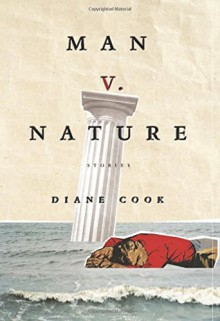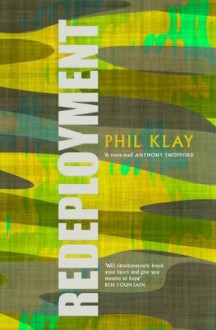
With a dozen short stories, the author accurately describes the effects of war with all its ramifications. Touching on Viet Nam and Afghanistan, it concentrates on Iraq, covering the corruption and hypocrisy of those in charge as well as the honor and bravery of the soldiers following their orders. It is very movingly portrayed. Events are brought to life in the simplicity of a soldier’s voice as he describes what he experiences and feels in several situations. Witnessing the death of fellow soldiers, the death of the enemy, the destruction of family ties, friend’s betrayals, and suicides, often threatened the very sanity of the returning soldiers. They were wounded not only physically, but emotionally and mentally. Once experienced, the field of battle alters one’s life and perceptions, irreversibly. The strain of war often catapults the soldier into a dark place. When he returns home it is hard to be in a normal world, without weapons, especially without the support of family and friends. Some soldiers returned to their homes and found their wives absent; they had no home, and no one waiting for their return.
As I read the stories, I began to feel as if the book was either designed more for a male reader, or perhaps it was simply more suitable for men because they make up the bulk of the fighting force or because the language is crude, the sex is cheap, the drinking is excessive and the experiences of war, with the blood and guts, the fear and the courage, are overt. The reaction of the soldiers is sometimes heartbreaking, sometimes distant and cold, but because the stories are trying to define the combat experience, it can’t be criticized for its harshness, crassness or straightforward expression of the message. It touches not only on the encounter of the battlefield, but also on the painful experience soldiers are faced with when they return home to a different set of rules, a totally different reality than the one in the field of conflict. Upon return, they are expected to fit back into society, obey standard rules, give up their weapons, and yet, for some it is impossible to go back, to return to what we consider a normal way of life. Sometimes the people are changed so much it is impossible to resume the same relationships, and sometimes, the injuries are too grave for them to fit back into what once was their real world.
I was sometimes uncomfortable with the descriptions of women simply as sex objects and by the fact that the men thought it was the right way to behave toward women. I was surprised by the idea that the cruelty often shown toward the enemy, unnecessarily, was totally acceptable, perhaps even encouraged, and with the idea that drugs and drinking excessively should be the norm in the battlefield setting. If these behaviors are lauded in one place, how can a soldier return to a reality where the polar opposite values exist? How can the soldier settle back in without trauma?
Basically, the book concentrates on the negative aspects of the war, not the pride or the nationalism or the courage. It trashes war and its effects on the soldiers, their families their communities, the enemies and all involved, probably justifiably.
The book is certainly anti-war, and it is more critical of the right than the left in its attitude about wars, even though the idea of going into conflict was usually non partisan. It is only the Monday morning quarterbacking that changes the story to suit a particular political party or purpose. Whether any of the wars were carried out effectively, who won and who lost, or whether or not the Weapons of Mass Destruction were found, were hidden or ever existed will be decided by future historians. Still, the author seems to label the right as the war mongers and the left as the peaceniks.
Although each soldier joins up for different reasons, each has a valid reason. Some join up because of intolerable family situations, some because of love of country, some to get an education later on, and some, simply because they don’t know what they are getting into, have no idea what else to do or love the fog of war. The utter futility of the conflicts, the incompetence of those at the top, the inadequate preparation, outdated weaponry and equipment, the shock of the brutality or even the lack of being directly involved in the actual fighting, has vast emotional effects on each man and woman. The rules of engagement that favored an enemy not interested in following those same rules are exposed using individual tales of struggle.
The U.S. didn’t understand the cultures they were at war with, they didn’t understand the mindset of the people who resented their efforts and thus didn’t appreciate what they were trying to do for them. One side always gained while another side lost so that the battle lines were drawn all over again. Often those in power abused their power and were as deceitful and dishonest as the people ousted. Could there be any overriding reasons that would justify the deaths and the catastrophic injuries to Americans that would justify their capture and/or torture at the hands of the enemy in these unending and unwinnable crusades to rid the world of evil despots and bring their masses to democracy other than our own national security? Are these people even ready for our form of democrcay, and do they even want it?
Those killed in action, those who survive, those who receive medals, they all see the war through different eyes and their reactions are based on their backgrounds and the perceptions they bring with them in addition to their experiences in the war zone. The book describes all of the corruption and hypocrisy along with the honor and bravery of the soldiers whose job it was to carry out the orders and question nothing only to return home to a country that questioned them.
***Winner of 2014 National Book Award for Fiction

 Log in with Facebook
Log in with Facebook 

















